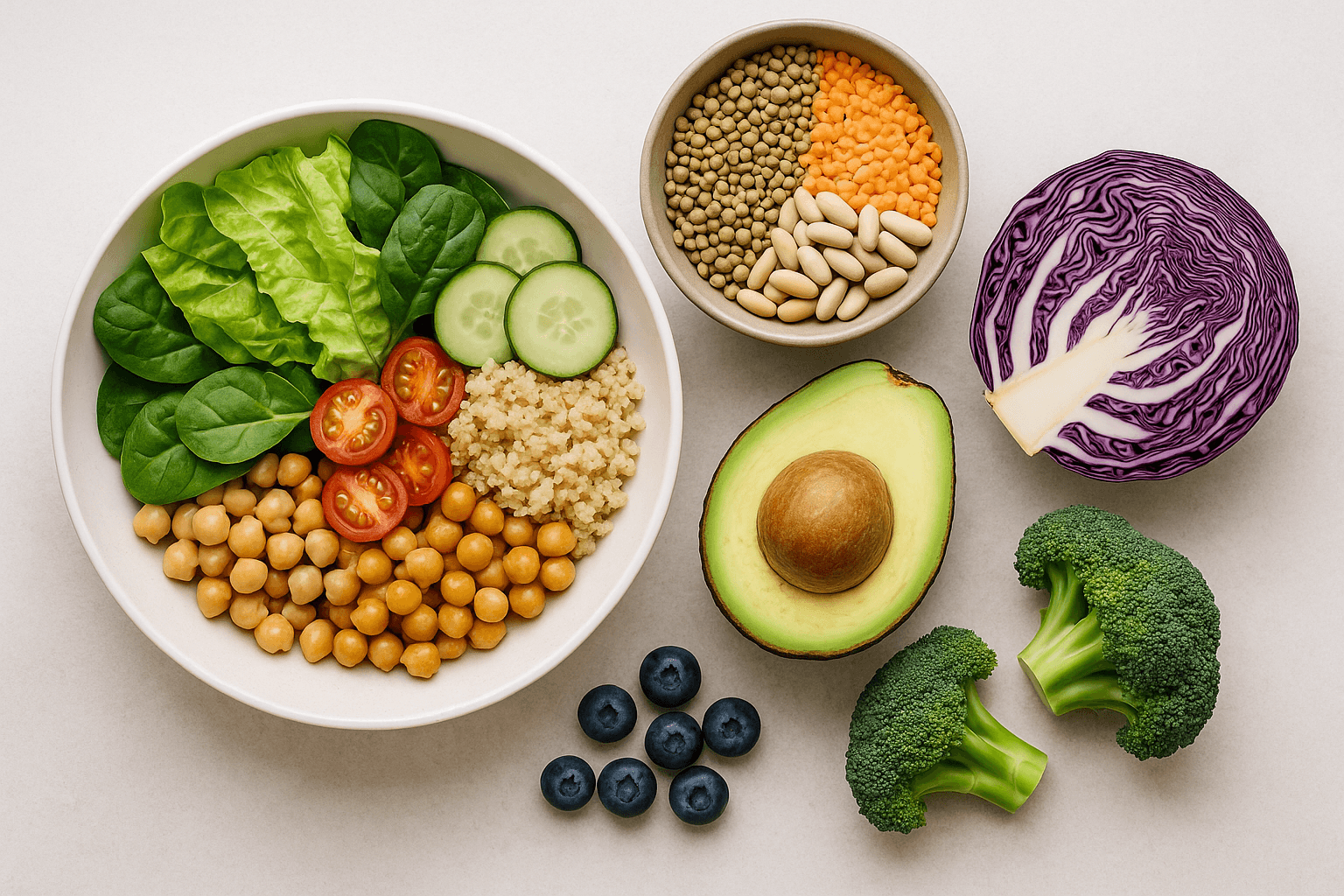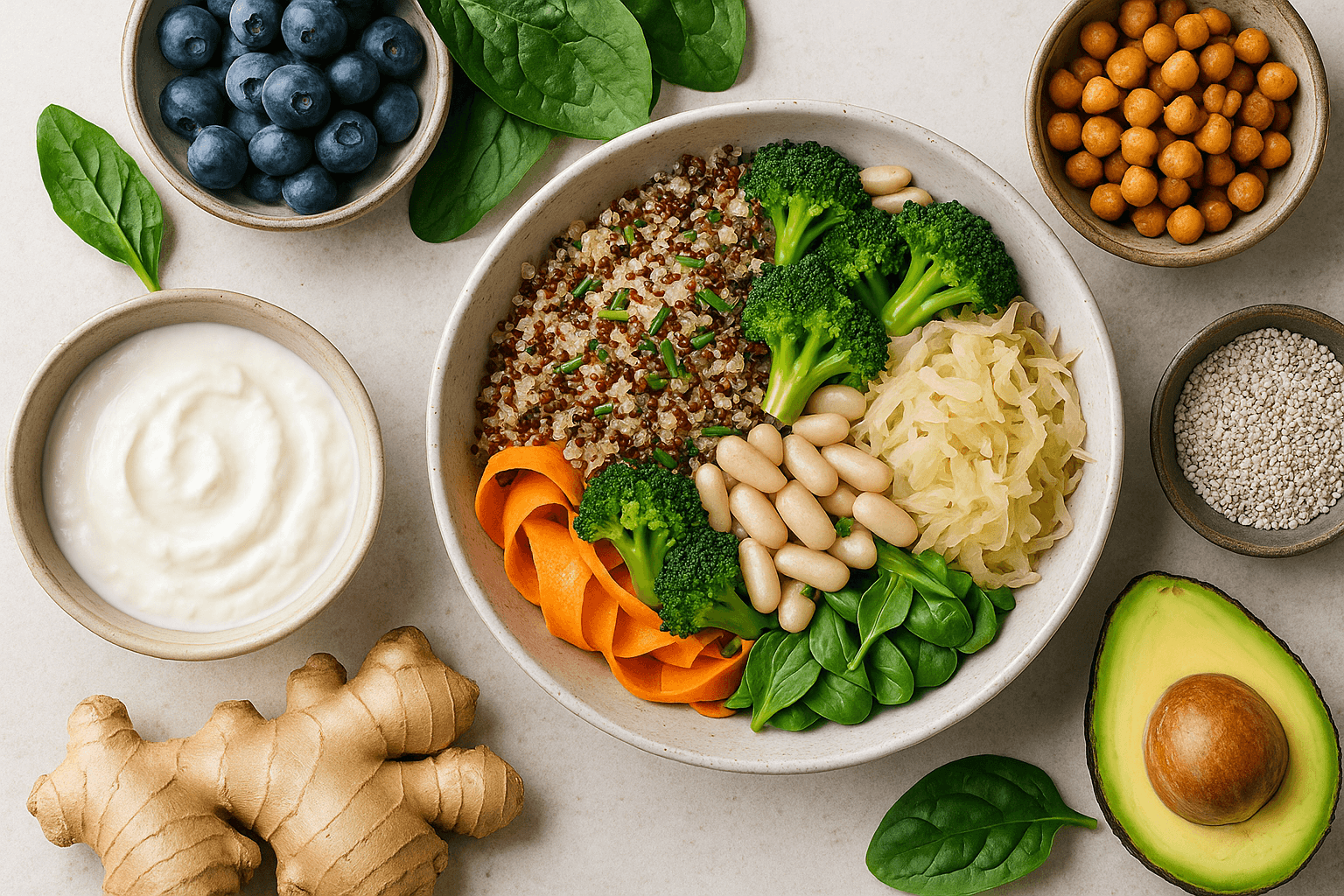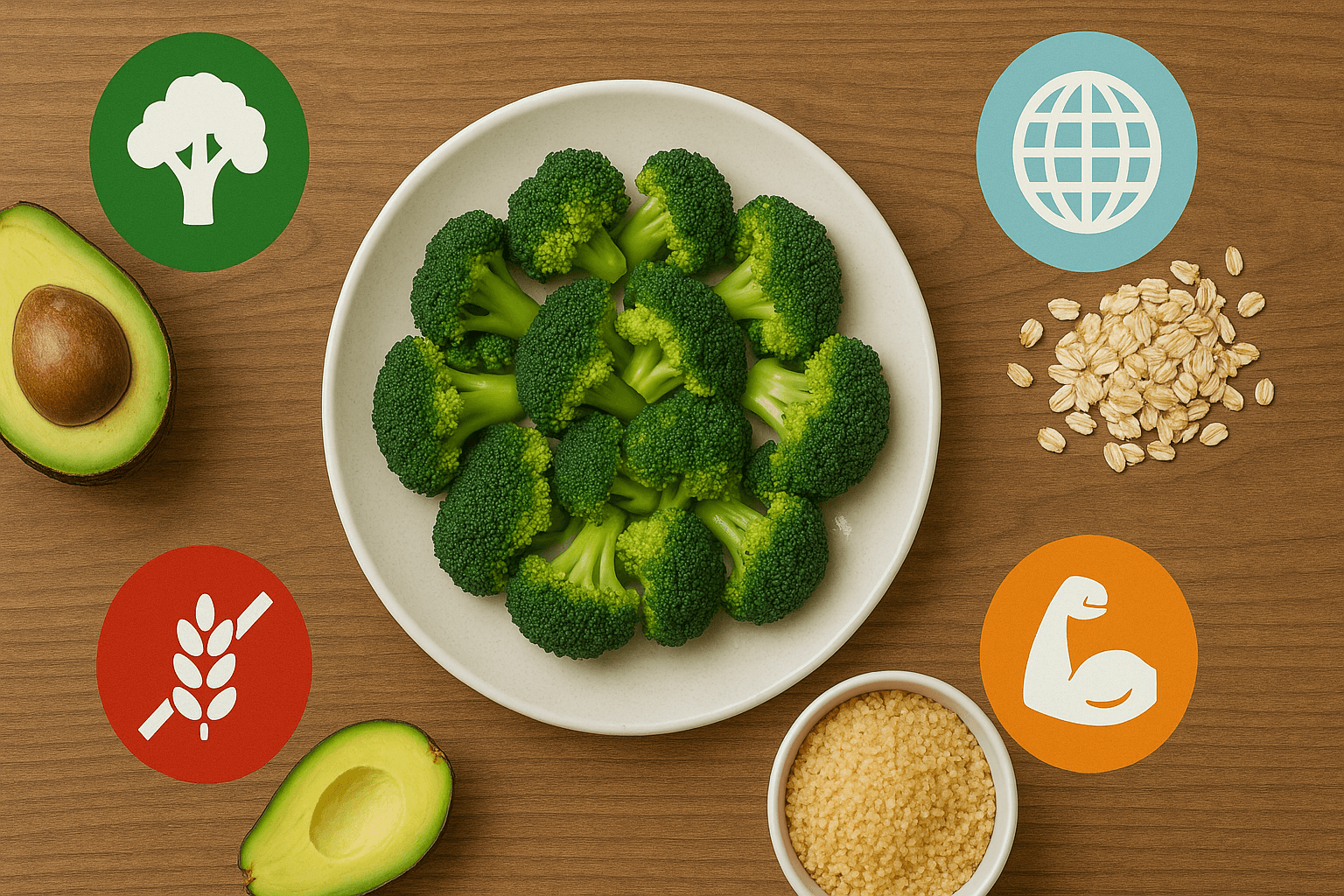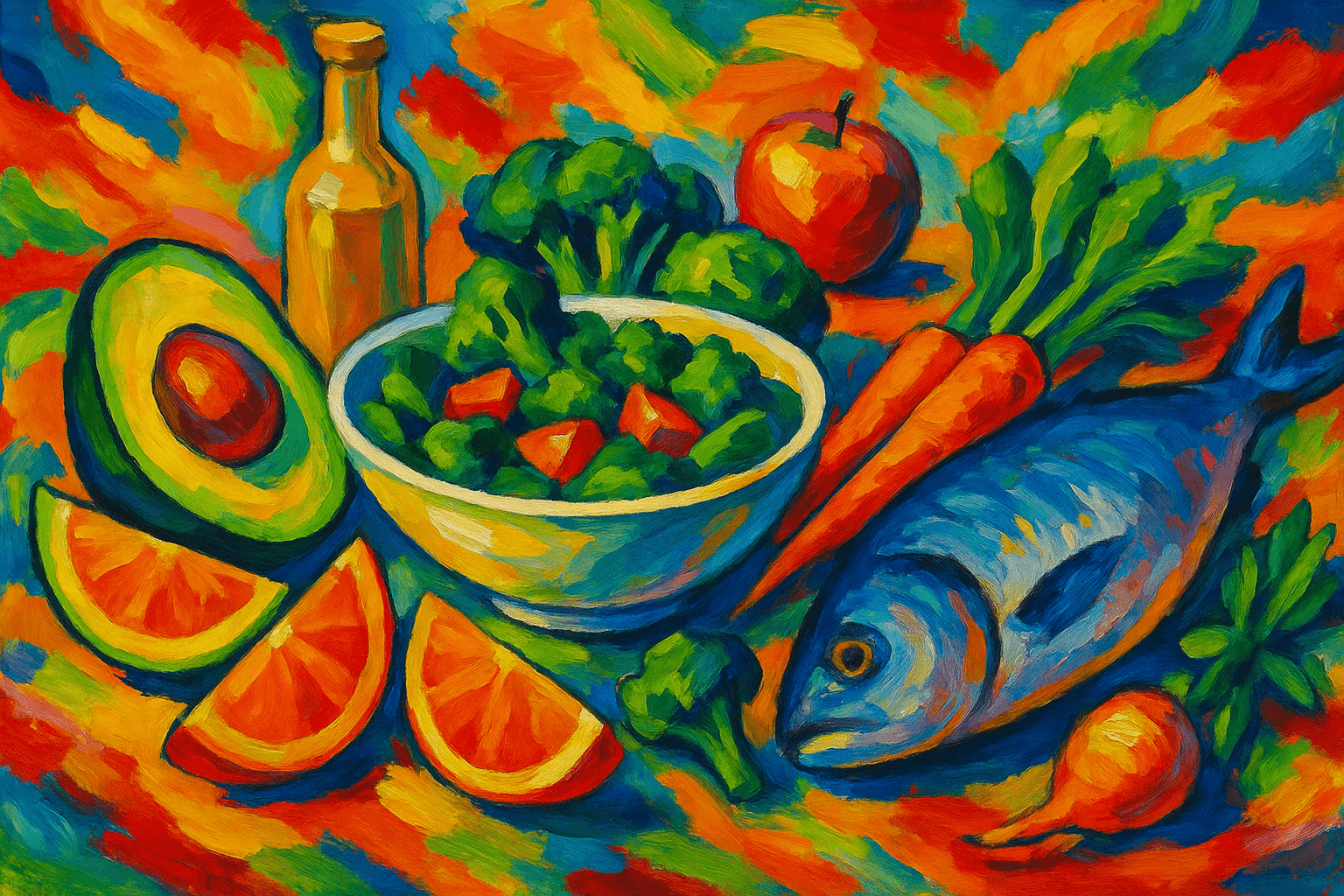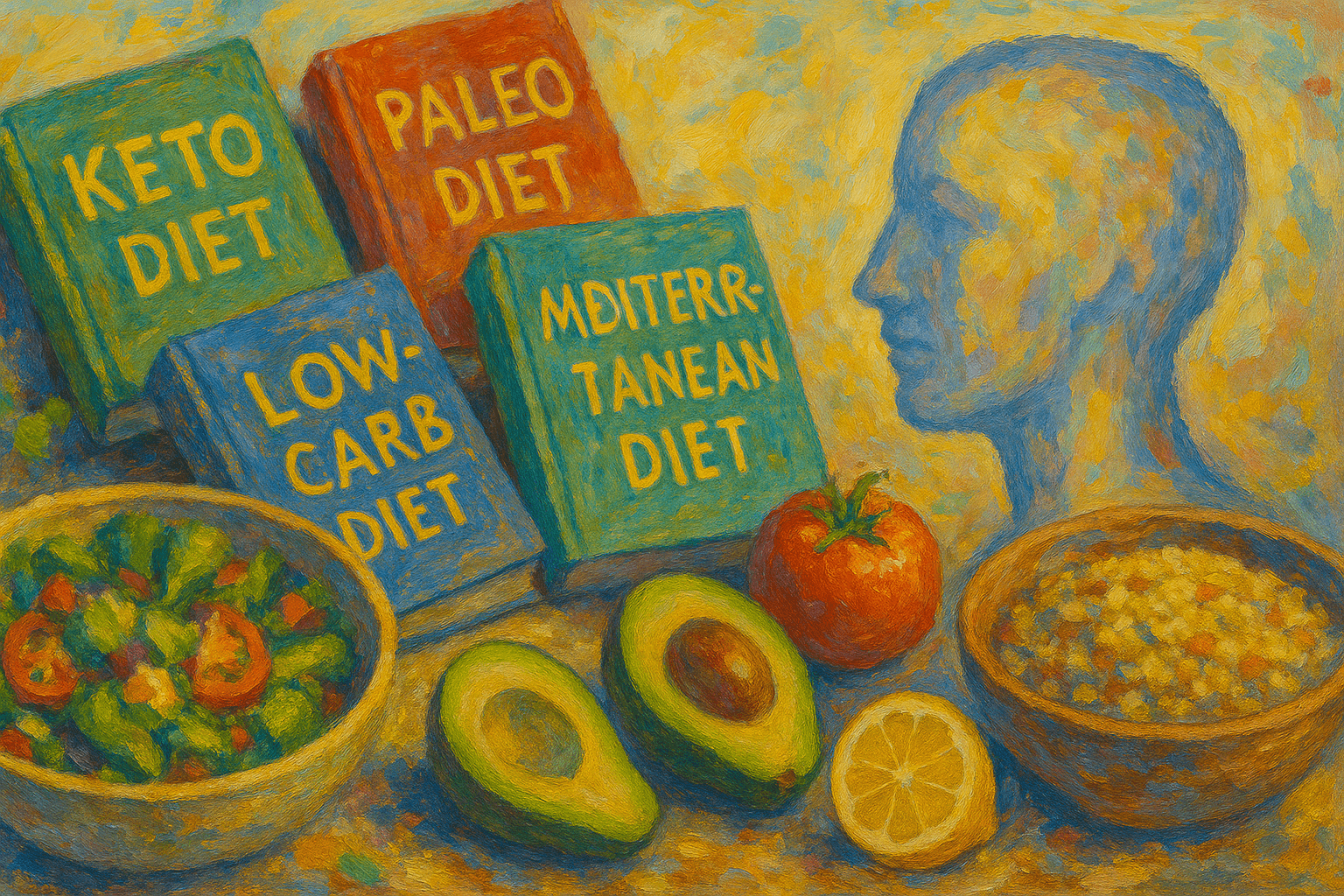SPECIALIZED DIETS: SCIENCE, BENEFITS AND REAL-WORLD TACTICS
Published on August 6, 2025
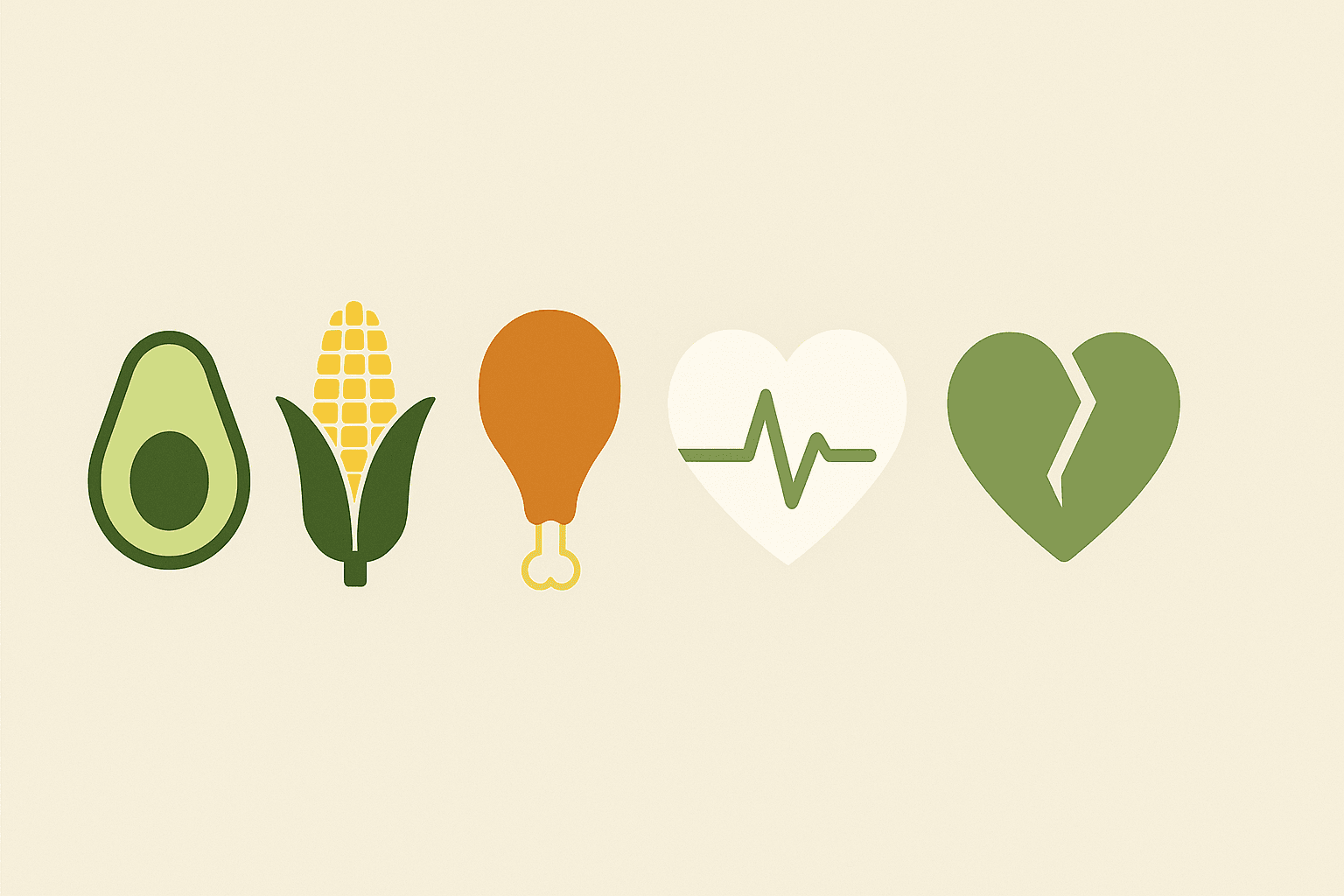
The emergence of dietary trends occurs more frequently than stars aligning, and it is no longer just for the rich and vain. Set on trend setting status, it appears that fad diets have become a prerequisite for those participating in conversations about nutrition. You have probably heard about Keto, vegan, gluten free, JERF (although this is not a diet as you will read in a second), intermittent fasting, Mediterranean diet, paleo… and the list goes on and on almost every month with some other buzzword making news or popping up in our feeds. However, beneath the hype what do these diets actually entail for your body, how you think and go about life?
As a dietitian of nearly 10 years, with my entire career based on evidence-based nutrition, I am going to share everything I know about “special diets” and break it down. We dive deep into the science of why Fiber may or may not work, break down the realities of Food Volume perceptions, discuss the pros and cons for their inherent restrictions (and most importantly) tell you how to make any dietary approach work for as long as you want without losing the joy & satisfaction that should come with eating!
What Is A Special Diet, Why Are They Raised?
In sum, there really is no such thing as a “special diet”— it just refers to an eating framework influenced by either medical conditions, personal objectives, food tastes and tolerances, ethical matters or even religious views. Occasionally a medically mandated diet best meets an individual’s health needs such as gluten-free for celiac disease, carbohydrate-counting for diabetes and elimination diets for food allergies. On other occasions, a person chooses a diet to aid weight loss or gain, increase energy levels, improve mood, reduce inflammation or manage sports activities.
What is driving the popularity of "special diet" today? The reasons, of course, are as diverse as people. Others are coming at things from a health perspective or looking for more energy. Some looking to ward off or manage disease, others seeking a better brain as they age. Contents The explosion of information (and misinformation!) While the internet has made it easier than ever for us to try new ways of eating, it also introduces massive amounts of confusion and overwhelm. So perhaps it comes as no surprise that the evidence, and your own body yet again got cut out.
A Voracious Voyage Reading Special Diets: A Diet, Health and Fitness Resource For Persons Of All Walks
Mediterranean Diet
The single dietary pattern found to be the best in study after study for staving off disease and increasing lifespan is a Mediterranean diet. The process gives you room for vegetables, fruits, whole grains, legumes, nuts, olive oil fish and wine (in moderation) with an emphasis on limiting red meat, processed foods and added sugars.
Some of the health effects have been demonstrated in a dozen or so large, long-term studies: A 2013 Cambridge University study published in PLoS One, for example, found that people living on Mediterranean islands don't live particularly longer — but are healthier longer. It's not a restrictive "diet" but a flexible, sensible style of eating that promotes balance, variety, and happiness. Meals are enjoyed slowly and often with family or friends, a reminder that food is just as much about connection as it is about nutrients.
Lots of colorful veggies and fruit Whole grains, healthy legumes, nuts and seeds Good fats, particularly extra virgin olive oil Eat fish and seafood 1-2 times a week Regular dairy products (not low fat) Meat no more than twice per week, poultry only occasionally and eggs about 3-4 each week. Minimal red and processed meat Spices and herbs instead of salts Wine in moderation (always optional)
Ketogenic Diet (Keto)
The Keto Diet: An ultra-low carb, high fat and moderate protein diet meant to put your body in a state of ketosis, allowing it to use fat as opposed to glucose for fuel. Keto was originally formulated to treat epilepsy, but it is now equally enlisted as a rapid-fire weight loss plan and blood sugar regulator.
It may promote rapid weight loss and potentially improve blood sugar control in people with type 2 diabetes or metabolic syndrome. It is, however, hard to stick with and not everyone responds in the same manner. This is a high-fat diet, so choose the right fats (e.g. avocado, nuts and olive oil) as opposed to processed meats or cheeses.
Sample day: AM: scrambled eggs with baby spinach & 1/2 avocado Lunch: Salad with grilled salmon, olive oil Dinner: Stir-Fried Chicken with Vegetables, cooked in Coconut Oil Snacks: Handful of mixed nuts, seeds and a few fresh berries
Restrictive and socially tricky Potential “keto flu” during adaptation Can lead to nutrient deficiencies if not balanced Not recommended for people with liver, kidney or gallbladder problems
Vegan and Plant-Based Diets
Vegan diets eliminate all animal products — meat, dairy, eggs, even honey — while plant-based diets are not so restrictive and emphasize mostly plants with the inclusion of some animal foods. Well-designed vegan diets are associated with lessened risks of heart disease, high blood pressure and type 2 diabetes as well as some forms of cancer. In addition, they are matched with an emphasis on ethics and environmentalism.
Good source of fiber, vitamins, minerals and antioxidants Low in saturated fat and cholesterol Supports animal welfare and sustainability
Potential pitfalls: Vitamin B12, Iron, Calcium, Omega-3s & Protein require planning Potential social obstacles (baking at home vs going out to restaurants) Supplements required (particularly B12 and vitamin D)
Experiment with new foods — Indian, Mediterranean, Ethiopian and Asian cuisine have great plant-based selection Include fortified foods (nut milks, cereals) Pair legumes and whole grains for a full protein profile
Gluten-Free Diet
For people with celiac disease or gluten sensitivity, the gluten-free diet is a must, as it eliminates all forms of wheat, barley and rye. In the case of many, it may not deliver health benefits but it has certainly broadened food options and consciousness.
Brown rice, steel cut oats (this is a whole grain), quinoa, millet, buckwheat Dairy, fish, eggs, meat, fruits and vegetables
Watch out for gluten-free junk food, which is still junk food. Fiber, B vitamin or iron gaps Labels are your friend—as gluten can find itself into sauces, dressings and even supplements.
Intermittent Fasting
Instead of what you eat, intermittent fasting concerns when you consume. Most common among these are 16:8 fasting (fast for 16 hours, eat in an 8-hour window) and alternate-day or the 5:2 fast.
Potentially supporting weight loss & insulin sensitivity and longevity New studies about the brain, maintenance of healthy cells by decreasing inflammation
Initially, some hunger and grumpiness (usually passes) Best for adults, not children, teens, pregnant women or those with eating disorders Combine fasting with a clean diet for best results
Low FODMAP Diet
This is a medical diet that was designed for people with irritable bowel syndrome (IBS) and studies continue to suggest improvements where ingesting even minimally high FODMAPs can cause symptoms of gas, bloating, pain and altered stool pattern. It is massively symptomatic but must be carried out under the direction of a dietitian—once the elimination period is over, individual reintroduction of foodstuffs will indicate what affects you.
Paleo Diet
Paleo is based on the idea that we should eat like our prehistoric ancestors, which means no grains or processed cheeses — only whole foods such as meat, fish, eggs, vegetables, fruits, nuts and seeds. No grains, legumes, dairy or processed foods.
Eliminates almost all added sugar and highly processed foods. High in protein and fiber May help in weight loss and balancing blood sugar
Can be expensive and restrictive Increased risk for calcium and vitamin D deficiency Removes healthy foods such as beans and whole grains
DASH Diet (Dietary Approaches to Stop Hypertension)
The DASH diet is rich in fruits, vegetables, whole grains, and lean protein and was created to help reduce blood pressure. Low in sodium, red meat and sweets. Linked to improved heart health, stroke risk, decreased type 2 diabetes risk.
High-Protein and Low-Carb Diets
These diets rate high among athletes and those aiming at muscle gain/fat loss, they popularize lean protein sources turned up to max volume with carbs on the down low. They assist with satiety, metabolic rate, and body composition, but are challenging to get in without a little careful consideration (especially fiber).
Anti-Inflammatory Diet
Based on foods known to reduce chronic inflammation — colorful fruits and vegetables, omega-3-rich fish and nuts, seeds, lots olive oil and whole grains. It restricts red plus processed meats, sugar, and ultraprocessed foods.
Special Diet: For Whom?
Especially those who must eat a special diet for healthier and safety reasons. Celiac, allergies, diabetes, IBD, liver or kidney disease — these diseases require dietary modification down to the gnat's butt. The rest are either trying to cheat death, or as a tool in personal improvement (more energy, better focus, weight loss…), or simply the newest way to seem morally superior over other who decide otherwise.
Well, that is true: there is no one-size-fits-all. The “best” diet means your best, health-supporting (or autoimmune-friendly) diet that you will find most important and be able to adhere to while staying true to the way you want to exist in the world. The best diet is the one that you can consistently follow in a way that brings you happiness, freedom, and peace.
Before starting a new diet, you should ask yourself these questions:
Is there any evidence for it? Will you receive adequate macros? Is the schedule compatible with your work, family and social life? Will you be able to consistently do this and happily continue doing it 10 years from now? Is this the diet that will keeps you healthy both physically and mentally for not weeks, but years? If you have a medical condition or take medications, be sure to talk with your healthcare provider or a registered dietitian first.
Common Sense Strategies for Navigating Any Special Diet
Study what you are going to eat — know what foods need to be featured in your diet, and what should be avoided. Stay prepared in the kitchen — keep staples handy for quick, healthy meals. Learn to read labels for gluten, lactose and hidden substances like sugars and allergens. Cultivate diversity — make food tasty and healthy by introducing variety, rotating recipes and exploring world cuisines. Intuitive eating — pay attention to how foods make you feel in terms of energy, digestion, mood and performance. Mindful eating — take your time, chew well, savor each bite, honor hunger and satiety cues. Do enjoy — food is to be enjoyed, not feared. Include treats in moderation.
Special Diets and Social Life
Look at menus beforehand for options that fit your needs. Contribute a dish to parties/potlucks. Communicate your needs politely and confidently. Don’t apologize for your health needs. If you make a mistake, just return to your plan next meal.
The Science Behind the Diets
Many people lose weight, regulate blood sugar, help prevent heart disease or improve digestion under special diets because they reduce added sugars, limit ultra-processed foods, increase fiber and nutrient-dense plants, balance blood sugar and eat intentionally. These characteristics deliver real results that last.
No diet is magic. The best eating pattern is the one that provides adequate nutrition, gives you energy, keeps you healthy and happy day after day. Moderate is better than extreme. Flexibility beats perfection.
Recap: It's Your Diet, Your Decision
Special diets are tools — useful, sometimes necessary and at others just intriguing to play with. However, your BRAND (YOU) should always be on top. Do not allow the "rules" of someone else become a stressor with you. Listen to your body, have an open mind, trust the science, and revisit your needs as life changes.
Eat with curiosity and intention. Live with flexibility. Enjoy every morsel — because food, after all, is supposed to comfort us with a lot of flavour and love.
If you are looking for a step-by-step meal plan, recipes or to troubleshoot eating on a specific diet, look no further! Navigating the world of nutrition can be overwhelming but I am here to help with clarity, confidence, and flavor. Your best life is out there, and it could be one meal away.



